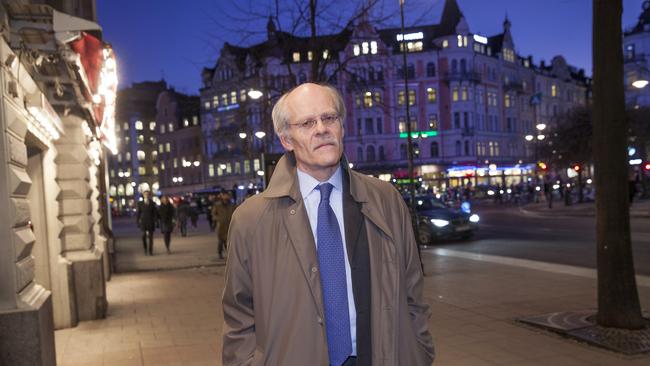Brexit stays Swedish central bank’s hand
Sweden’s central bank delayed raising interest rates, saying the Brexit knocked its confidence.

Sweden’s central bank on Wednesday said the turbulence created by the UK’s plan to quit the European Union had knocked its confidence in the economic outlook and it didn’t now expect to raise interest rates as soon as it had previously thought.
Announcing the results of a policy meeting on Tuesday, the Swedish Riksbank left its main interest rate at minus 0.5 per cent, as analysts had expected. It said it now expects to increase borrowing costs in the second half of next year instead the middle of next year.
“There is considerable uncertainty over economic developments abroad, and this has increased as a consequence of the result of the British referendum on the EU,” the Riksbank said in a statement.
A highly expansionary monetary policy is needed to provide support to the Swedish economy and rising inflation, it said.
Elsewhere, Poland’s central bank also left its interest rates unchanged, saying the current level of 1.5 per cent was “conducive to balanced growth”. Hungary’s central bank left rates unchanged at 0.9 per cent but kept open the option of using unconventional tools to loosen monetary policy further in the future.
The UK’s decision to leave the 28-member European Union has thrown the nature of co-operation between its members into doubt, and the uncertainty has roiled currency and equity markets.
The Riksbank’s acknowledgment that it may need to keep interest rates lower for longer is the latest chapter in a prolonged policy headache. Despite a slight downward revision in the Riksbank’s growth forecasts for Sweden on Wednesday, the domestic economy here looks set to continue to do well, and house prices are rising rapidly.
That would normally be a prompt for central banks to raise rates to cool demand for loans.
But economic problems that have hit harder elsewhere, from the global financial crisis of 2008 to the European debt crisis and now the UK-related turbulence, have tied the Riksbank’s hands every time it has tried to take steps toward higher rates.
The Riksbank has worried that if it raises rates before the likes of the European Central Bank, the Federal Reserve and the Bank of England, then the Swedish currency will strengthen as investors pile in seeking higher returns. That would make imports cheaper and push already-low inflation in Sweden even further below target.
Sweden’s Riksbank hasn’t hit a 2 per cent inflation target for 4 1/2 years.
In a bid to track the ECB, Sweden has cut its interest rate below zero, a radical move that involves charging banks to hold some types of deposits with the aim of encouraging them to lend.
Similar trends have emerged in other small, open economies, such as those of Denmark and Switzerland, which also have subzero rates.
In Sweden, the central bank governor has warned that the low rates could be creating a housing price bubble. Prices rose 14 per cent last year and have doubled over a decade.
The governor has previously listed measures he wants to see politicians and regulators take, from increasing house building to cutting rebates Swedes get on the interest they pay on their mortgages.
The Swedish krona weakened a little during the European morning after an initial rise following the Riksbank’s policy statement. At 11:26am in Stockholm, the euro traded at 9.46 kronor ($US1.11), up from 9.42 before the policy statement.
Dow Jones





